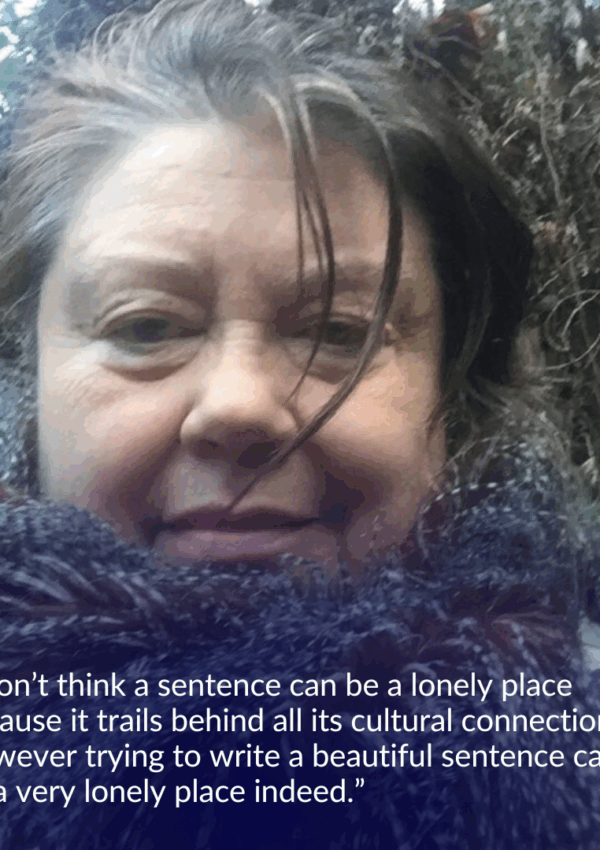Despite two and a half years in a top-ranked MFA program, nobody told me anything about what the writing life was like—especially outside the shelter of academia. In our writing workshops we analyzed the short stories everyone was writing in terms of plot, POV, structure, characterization, scene building, and even diction. The attention to detail could sometimes be excruciating, as when one professor insisted I shouldn’t have a character “sit next to” another character but “sit by” them. He thought three words were too many; me, I liked the rhythm. “Sit by” seemed too abrupt for my narrative. But when I got my degree I had no idea what the writing life was like and have learned five key things the hard way.
Here’s my list:
1. You need to accept from the start that you have very little control after you publish. You can polish your work as much as you can, read widely and educate yourself as an author, attend seminars and workshops, find a terrific mentor, network, get a top agent and even land a book contract with a great publisher—but what happens to your book once it’s out there may seem completely random at times. Other books just like it may swamp yours. Books that are far worse will get great reviews and better sales. Your book may also be ignored by reviewers of all kinds for reasons you will never know. So you have to focus on what you can control: being the best writer you can be, enjoying what you do while you do it, planning it, revising it, and researching it. And then try to let go once it’s published and move on to another project.
2. Writing is a business. It always was and always will be. Expect pressure from all sides on you to sell, sell, sell. When I started out, bookmarks and other author swag were in. Then I was urged not just to attend writing conferences but to buy ads in conference program books and schmooze the book sellers who were there. Later came building my website, paying for book trailers, hiring my own publicist, establishing a Facebook, Twitter, and Goodreads presence, blogging and blog tours. There’s always something new which is the magic answer to making you successful. But the competition gets more intense all the time—especially with three million books published every year in the U.S.—and you can find that promotion is a rabbit hole. It’s important to establish parameters for yourself since you can’t do everything and be everywhere. Never let promotion become more important than writing itself, and just because something works for someone else is no guarantee it’ll work for you.
3. The writing life will be lonelier than you can imagine despite all the writers you might meet and hang out with, and they’re not always the easiest people to be around. Let’s face it, are you? Ask your significant other. As paradoxical as it might seem, don’t let writing take over your life. If you haven’t already, start building a life for yourself that has other compelling interests. Travel. Learn to play an instrument. Study a foreign language. Garden. Train for a Triathlon. Get a dog. It doesn’t matter what you do as long as writing isn’t the be-all and end-all of your existence, because otherwise those days (or weeks or months or even years) when things go south you’ll feel empty. And make sure you have plenty of friends who aren’t writers so that you’re not constantly talking shop. Normal people can be interesting, too.
4. Exercise is crucial for people like us who spend so much time sitting hunched over a screen. It’s important to break away on a regular basis and walk, swim, jog, lift weights, do Zumba, take Pilates, spin, do yoga, study martial arts, bike—anything that gets you out of your head and into your body. There’s nothing like physical activity to give your mind a rest—it’s almost as good as napping! And surprisingly, you’ll often find that when you might feel stuck, instead of obsessing about it or heading for the fridge or your bar cart, the best thing to do is get out and get physical. Let your subconscious take care of the writing problem and solve it for you while you’re taking care of your body. You’ll also be breaking the isolation of the writer’s life and may even get some good story ideas along the way. Being a regular at my health club gave me material and inspiration for a whole crime novel: Hot Rocks.
5. Be prepared for surprises in your career—because they will come. Good surprises. Your career can take you places you would never imagine because your imagination is boundless if you have the courage to let it be. I started out as a short story writer and novelist but one day suddenly had an idea for a psychological study of Edith Wharton, one of my favorite writers. After that came a mystery series which got me my first review in the New York Times. And over the years I’ve published in wildly different genres, books I never would have guessed I’d write: a vampire novella, a travelogue/memoir about what Germany has meant to me as the son of Holocaust survivors, a historical novel set in The Gilded Age, a thriller and many more. Don’t rule anything out, and don’t be a genre snob. One of my favorite authors, Henry James, gave this advice to a young writer: “Try to be one of those on whom nothing is lost.” The diction may be dated, but the message is timeless.

Lev Raphael escaped academia many years ago to write and review full-time. He’s the author of Writer’s Block is Bunk and 26 other books in genres from memoir to mystery. His work has appeared in fifteen languages and he edits, coaches, and mentors writers at Write Without Borders.




Good advice. I look back on my 40+ years of writing and see the truth of your comments in almost every year of my writing life. Work hard at what you can control and let go of the rest.
I’m glad it spoke to you.
Thank you, Lev, for these 5 points, all of which I’ve taken to heart, as you will see by my comments following. I’ve crocheted several beautiful afghan blankets, learned Spanish classical guitar (although I’m still the novice), and have become quite proficient in the Spanish language while taking up Polish on the side to get back to my ancestry. My treadmill also gets a workout, and most if not all of my friends are non-writers. My Kindle runneth over with my reading list. So, I am living the 5-step process, as best I can. My only concern is that if three million books are published in the U.S. each year, why can’t I get just one published? Boo Hoo! 🙂
Getting published is like winning the lottery in a way: the right book has to hit the right agent and/or editor at just the right time. The right time in publishing and the right time for the agent or editor. A writer friends once quipped it was as hard as finding a partner. Then he added. “Harder.”